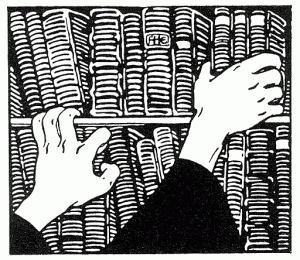Agent Cuts Exclusivity Deal with Amazon
Monday’s news that ebooks were outselling hardbacks at Amazon came as a big shock. It looked to be the death knell for traditional publishing. It wasn’t.
New on Thursday that Andrew Wylie’s agency has struck a deal for exclusive ebook distribution with Amazon of his client’s literary works is. In the deal, Wylie’s imprint, Odyssey Editions, grants Amazon a two-year exclusive to publish works by Philip Roth, Saul Bellow and others.
This deal is important for several reasons.
First, it shows that agents are not content to let the publishing ship sink beneath them. If authors start going direct to ebook, agents are relegated to cutting deals with dying or small houses for paper-rights only, which means their income drops off significantly. Agents, being thus motivated, will pull their clients into the 21st Century. One way or another authors will retain control of their ebook rights.
Second, and of critical importance, it underscores the extreme vulnerability traditional publishers face. It wasn’t until 1996 that publishers in SF/Fantasy began asking for electronic rights to books. That demand was made in other genres much later. That means that traditional publishers have a 15 year window of work for which they can sell electronic books. While they are now offering incredibly shoddy deals to try to scoop up backlist books for which they don’t own the rights, authors and agents are now seeing the foolishness of accepting such deals. And as the ebook market grows, talent (writers) can push for more favorable terms on ebook sales precisely because they, in conjunction with their agents or by themselves, don’t need the publishers for those sales.
Third, you’ll note that the deal was for two years, which means two things. First, because it is exclusive, you know Wylie got better than the 70% Amazon is offering everyone else. (If I remember correctly, 75% was what Amazon.UK was offering for exclusivity.) Second, Wylie is assuming that the marketplace is changing so quickly that in two years he can strike an even more lucrative deal with whichever other players are out there. Most likely candidates are Apple or Google, but Sony, Sharp and B&N might try to get into the fight. This means there is competition for ebook rights, and that is never a bad thing for authors.
My only real concern with this deal would be how the percentages get split between author and agent. If the agent is taking 15 points out of whatever is offered the author, he’s going to be getting more than he would if he just took 15% of the revenues that come in. (The difference between the first case and second would be 37.5 cents on a $10 book, which might not seem significant, but it does add up—assuming Amazon is offering 75% for the exclusivity.) This is not to suggest the agent wouldn’t earn the money by bringing in folks to create the ebook editions, but I’d hope that authors go into such deals with their eyes open.
It will also be interesting to see how quickly the contract calls for the agent to pass the money on to the clients, with faster being preferential, of course. Since Amazon pays 60 days after sales, traditional publishers might have to speed up their accounting (bringing it, at least, into the 20th Century).
A second front has opened in the assault on Publishing-as-we-know-it. It’s going to make for fun times unless, of course, you’re a publisher.



 23. Jul, 2010
23. Jul, 2010 








3 Responses to “Agent Cuts Exclusivity Deal with Amazon”